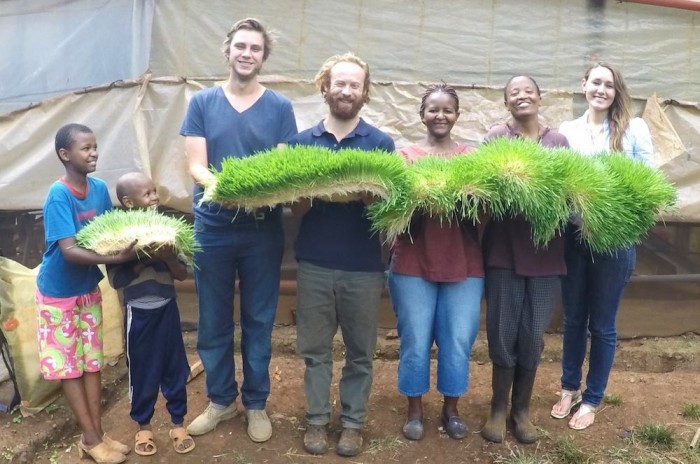
Kenya produces approximately 2.8 billion litres of milk every year. 80 per cent of the industry’s production comes from small-scale dairy farmers, who struggle to maintain high levels of production due to extreme weather changes and the increasingly poor quality and high price of commercial animal feed. Social enterprise LishaBora is a hydroponic greenhouse system that offers these farmers an alternative, low-cost feed solution.
The increased frequency of climate change-related drought periods and excessive rainfall combined with the inadequate fodder currently available to farmers makes LishaBora an appealing means of increasing local milk production. Founder Graham Benton developed the feed production system together with local dairy farmers in Kenya’s Kiambu County.
LishaBora’s barley fodder is grown in low-cost, temperature-controlled greenhouses using hydroponic technology, which requires equipment that most small-hold farmers cannot afford. The benefits of hydroponic farming are that a crop can be harvested only nine days after seed germination and the risk of soil-borne diseases is eliminated as the seeds are grown in a water mix.
The LishaBora greenhouses sell a superior quality feed to farmers at half the price of current commercial alternatives due to the low cost of operations. Hydroponically grown fodder is rich in nutritional content and has been proven to increase dairy production by 20 per cent and yield healthier cows that can produce milk any time of the year.






